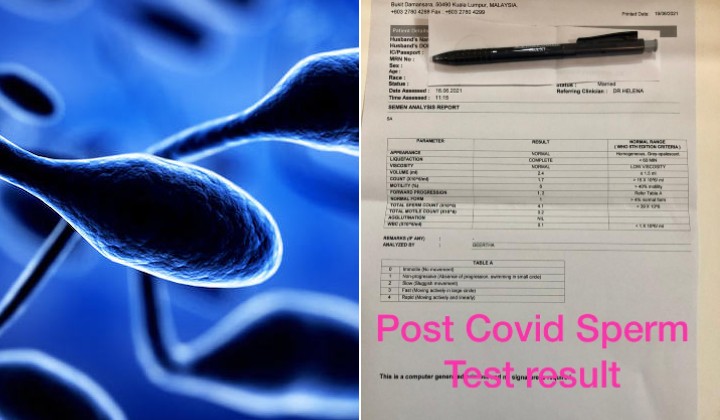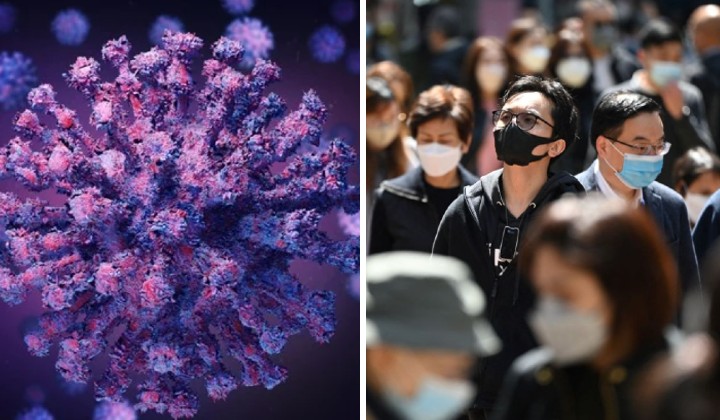KL Fertility Doctor Found That Covid-19 Lowered Sperm Count In Her Patient
A local doctor found that her patient’s sperm count has decreased after the couple contracted Covid-19.

Subscribe to our Telegram channel for the latest stories and updates.
Bad news for the men, it seems that there’s evidence that getting infected with Covid-19 doesn’t only damage your lungs but it also has an effect on your sperm count, and not in a positive way.
Facebook user Dr Helena Lim posted on the platform sharing her experience of treating a couple who wanted to undergo an in vitro fertilisation (IVF) treatment shortly before contracting the coronavirus.
What the doctor found after conducting another sperm test a month after the couple recovered was that there was a drop in sperm count, motility, speed and morphology.
A couple came to see me for IVF. Husband’s sperm was acceptable in count but have some quality issue. However, due to the wife’s age, they decided to proceed with an IVF. Unfortunately, during the initiation of IVF cycle, both of them were tested positive for Covid and the IVF cycle had to be abandoned. A repeat sperm test after one month post Covid showed significant drop in sperm count, motility, speed and morphology. Please protect yourself against Covid, because Covid does have a significant implication on your fertility.
Dr Helena Lim via Facebook
Does it really affect your sperm?
Sadly, this is not an isolated case as studies on the effect of Covid-19 on the gonads has been reported by both local and international media.
According to reports by NST, a study found that sperm cells of Covid-19 patients showed a significant increase in markers of inflammation and oxidative stress, a chemical imbalance that can damage DNA and proteins in the body.
These effects on sperm cells are associated with lower sperm quality and reduced fertility potential.
Meanwhile, LiveScience quoted a study done by the University of Florence in Italy, in which the semen samples from 43 men ages 30 to 65 were analyzed about one month after they had recovered from Covid-19.
They found that 25% of the men had low sperm count, and nearly 20% had azoospermia, or the total absence of sperm in semen but concluded that more research is needed to see if it actually harms the male reproductive system.
Share your thoughts with us via TRP’s Facebook, Twitter, and Instagram.
Unkempt in both stories and appearance, Hakim loves tech but tech left him on read, previously he used to write about tall buildings and unoccupied spaces that he can't afford, and legend has it that he still can't afford it to this day





